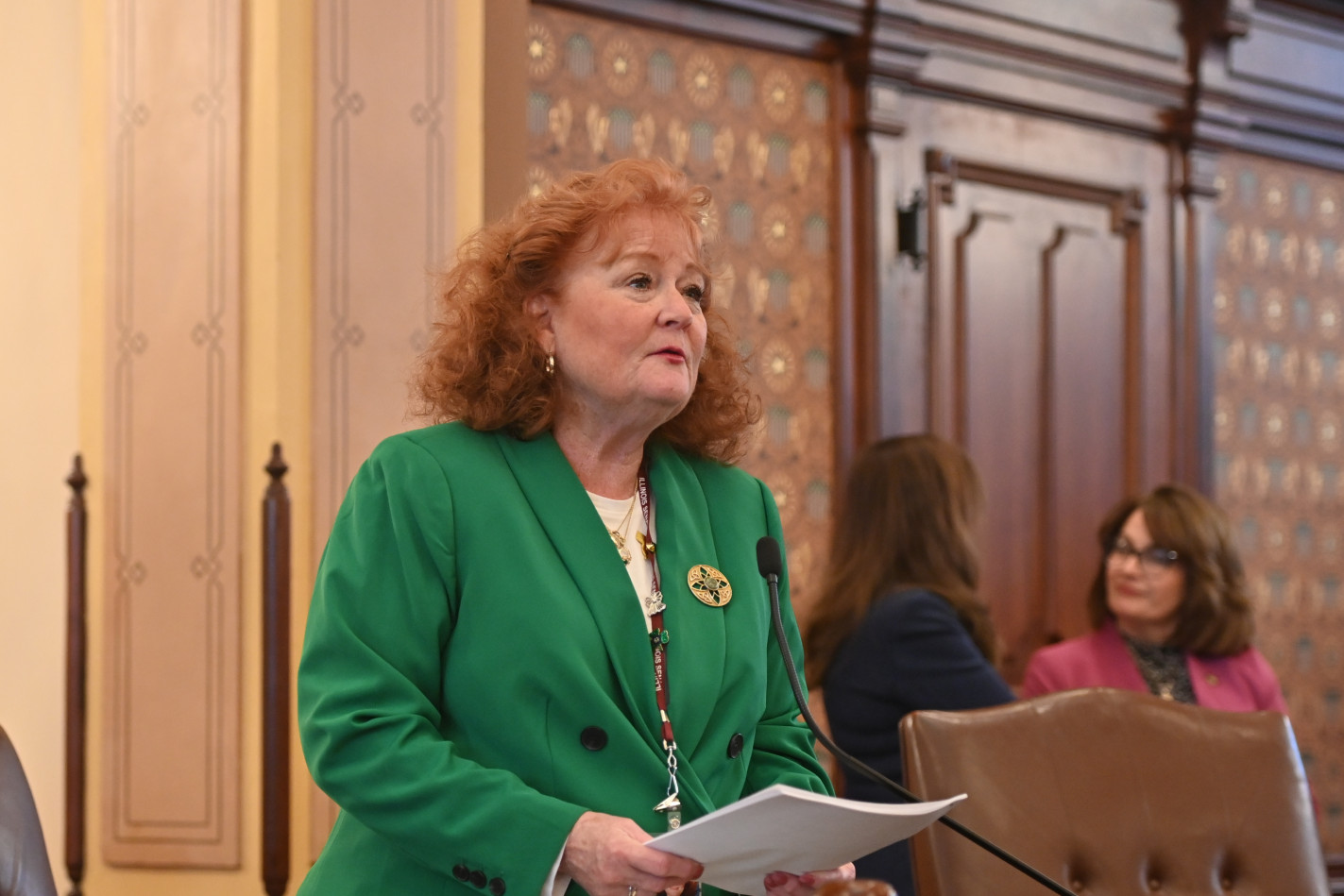- Details
 DES PLAINES – State Senator Laura Murphy received a 2025 Outstanding Legislator of the Year Award from the Illinois Association of Park Districts in recognition of her leadership on legislation that supports park districts across Illinois.
DES PLAINES – State Senator Laura Murphy received a 2025 Outstanding Legislator of the Year Award from the Illinois Association of Park Districts in recognition of her leadership on legislation that supports park districts across Illinois.
“I am honored to receive this award and am proud to have supported legislation that equips our park districts with essential funding and land development grants,” said Murphy (D-Des Plaines). “I always appreciate the time and effort that park districts put in to educating, providing after school programs for students, creating employment options for their communities among other things.”
Read more: Illinois Association of Park Districts presents Murphy with Legislator of the Year Award
- Details
 SPRINGFIELD— The Northern Illinois Transit Authority Act passed both houses this Friday, with support from State Senator Laura Murphy.
SPRINGFIELD— The Northern Illinois Transit Authority Act passed both houses this Friday, with support from State Senator Laura Murphy.
“This legislation is a huge step toward a safe, modernized and affordable transit system for residents in the 28th District and across the state,” said Murphy (D-Des Plaines). “Through these reforms, we are providing solutions to real problems that commuters face every day without increasing or creating new taxes on Illinoisans.”
- Details

SPRINGFIELD – Children who walk to and from school will be safer under a new law championed by State Senator Laura Murphy.
“Every parent wants to know that their child reached their school safely, but with distracted driving on the rise, even a simple walk to school can be dangerous,” said Murphy (D-Des Plaines.) “One thing that we can do to help reduce distraction is installing flashing beacons at crosswalks.”
Senate Bill 1941 allows local governments to install rapidly flashing beacons at pedestrian crosswalks near schools. These beacons activate when pedestrians use the crosswalk, alerting drivers to their presence.
Read more: School crossings will be safer under new Murphy law
- Details

SPRINGFIELD –State Senator Laura Murphy championed a new law that requires schools to establish emergency evacuation plans.
“This law ensures that schools are prepared for emergencies involving hazardous substances to protect students, staff, and visitors,” said Murphy (D-Des Plaines). “Preparing for accidents isn’t just taking precaution – it’s demonstrating responsibility.”
Under this legislation, the Illinois Emergency Management Agency-Office of Homeland Security would be required to work with the Illinois State Board of Education to develop guidance detailing the potential impacts of an explosion or release of hazardous substances near schools. The guidance must include recommendations for evacuation plans, communication protocols and how to identify a school district’s local disaster agency. This guidance would be shared with all local emergency planning committees, emergency services and disaster agencies and school districts in the state by Jan. 2027.
Read more: Governor signs Murphy’s measure to ensure schools are prepared for emergencies
More Articles …
Page 1 of 129







